6.4: Levels of Policing and Role of Police
- Page ID
- 15963
\( \newcommand{\vecs}[1]{\overset { \scriptstyle \rightharpoonup} {\mathbf{#1}} } \)
\( \newcommand{\vecd}[1]{\overset{-\!-\!\rightharpoonup}{\vphantom{a}\smash {#1}}} \)
\( \newcommand{\id}{\mathrm{id}}\) \( \newcommand{\Span}{\mathrm{span}}\)
( \newcommand{\kernel}{\mathrm{null}\,}\) \( \newcommand{\range}{\mathrm{range}\,}\)
\( \newcommand{\RealPart}{\mathrm{Re}}\) \( \newcommand{\ImaginaryPart}{\mathrm{Im}}\)
\( \newcommand{\Argument}{\mathrm{Arg}}\) \( \newcommand{\norm}[1]{\| #1 \|}\)
\( \newcommand{\inner}[2]{\langle #1, #2 \rangle}\)
\( \newcommand{\Span}{\mathrm{span}}\)
\( \newcommand{\id}{\mathrm{id}}\)
\( \newcommand{\Span}{\mathrm{span}}\)
\( \newcommand{\kernel}{\mathrm{null}\,}\)
\( \newcommand{\range}{\mathrm{range}\,}\)
\( \newcommand{\RealPart}{\mathrm{Re}}\)
\( \newcommand{\ImaginaryPart}{\mathrm{Im}}\)
\( \newcommand{\Argument}{\mathrm{Arg}}\)
\( \newcommand{\norm}[1]{\| #1 \|}\)
\( \newcommand{\inner}[2]{\langle #1, #2 \rangle}\)
\( \newcommand{\Span}{\mathrm{span}}\) \( \newcommand{\AA}{\unicode[.8,0]{x212B}}\)
\( \newcommand{\vectorA}[1]{\vec{#1}} % arrow\)
\( \newcommand{\vectorAt}[1]{\vec{\text{#1}}} % arrow\)
\( \newcommand{\vectorB}[1]{\overset { \scriptstyle \rightharpoonup} {\mathbf{#1}} } \)
\( \newcommand{\vectorC}[1]{\textbf{#1}} \)
\( \newcommand{\vectorD}[1]{\overrightarrow{#1}} \)
\( \newcommand{\vectorDt}[1]{\overrightarrow{\text{#1}}} \)
\( \newcommand{\vectE}[1]{\overset{-\!-\!\rightharpoonup}{\vphantom{a}\smash{\mathbf {#1}}}} \)
\( \newcommand{\vecs}[1]{\overset { \scriptstyle \rightharpoonup} {\mathbf{#1}} } \)
\( \newcommand{\vecd}[1]{\overset{-\!-\!\rightharpoonup}{\vphantom{a}\smash {#1}}} \)
\(\newcommand{\avec}{\mathbf a}\) \(\newcommand{\bvec}{\mathbf b}\) \(\newcommand{\cvec}{\mathbf c}\) \(\newcommand{\dvec}{\mathbf d}\) \(\newcommand{\dtil}{\widetilde{\mathbf d}}\) \(\newcommand{\evec}{\mathbf e}\) \(\newcommand{\fvec}{\mathbf f}\) \(\newcommand{\nvec}{\mathbf n}\) \(\newcommand{\pvec}{\mathbf p}\) \(\newcommand{\qvec}{\mathbf q}\) \(\newcommand{\svec}{\mathbf s}\) \(\newcommand{\tvec}{\mathbf t}\) \(\newcommand{\uvec}{\mathbf u}\) \(\newcommand{\vvec}{\mathbf v}\) \(\newcommand{\wvec}{\mathbf w}\) \(\newcommand{\xvec}{\mathbf x}\) \(\newcommand{\yvec}{\mathbf y}\) \(\newcommand{\zvec}{\mathbf z}\) \(\newcommand{\rvec}{\mathbf r}\) \(\newcommand{\mvec}{\mathbf m}\) \(\newcommand{\zerovec}{\mathbf 0}\) \(\newcommand{\onevec}{\mathbf 1}\) \(\newcommand{\real}{\mathbb R}\) \(\newcommand{\twovec}[2]{\left[\begin{array}{r}#1 \\ #2 \end{array}\right]}\) \(\newcommand{\ctwovec}[2]{\left[\begin{array}{c}#1 \\ #2 \end{array}\right]}\) \(\newcommand{\threevec}[3]{\left[\begin{array}{r}#1 \\ #2 \\ #3 \end{array}\right]}\) \(\newcommand{\cthreevec}[3]{\left[\begin{array}{c}#1 \\ #2 \\ #3 \end{array}\right]}\) \(\newcommand{\fourvec}[4]{\left[\begin{array}{r}#1 \\ #2 \\ #3 \\ #4 \end{array}\right]}\) \(\newcommand{\cfourvec}[4]{\left[\begin{array}{c}#1 \\ #2 \\ #3 \\ #4 \end{array}\right]}\) \(\newcommand{\fivevec}[5]{\left[\begin{array}{r}#1 \\ #2 \\ #3 \\ #4 \\ #5 \\ \end{array}\right]}\) \(\newcommand{\cfivevec}[5]{\left[\begin{array}{c}#1 \\ #2 \\ #3 \\ #4 \\ #5 \\ \end{array}\right]}\) \(\newcommand{\mattwo}[4]{\left[\begin{array}{rr}#1 \amp #2 \\ #3 \amp #4 \\ \end{array}\right]}\) \(\newcommand{\laspan}[1]{\text{Span}\{#1\}}\) \(\newcommand{\bcal}{\cal B}\) \(\newcommand{\ccal}{\cal C}\) \(\newcommand{\scal}{\cal S}\) \(\newcommand{\wcal}{\cal W}\) \(\newcommand{\ecal}{\cal E}\) \(\newcommand{\coords}[2]{\left\{#1\right\}_{#2}}\) \(\newcommand{\gray}[1]{\color{gray}{#1}}\) \(\newcommand{\lgray}[1]{\color{lightgray}{#1}}\) \(\newcommand{\rank}{\operatorname{rank}}\) \(\newcommand{\row}{\text{Row}}\) \(\newcommand{\col}{\text{Col}}\) \(\renewcommand{\row}{\text{Row}}\) \(\newcommand{\nul}{\text{Nul}}\) \(\newcommand{\var}{\text{Var}}\) \(\newcommand{\corr}{\text{corr}}\) \(\newcommand{\len}[1]{\left|#1\right|}\) \(\newcommand{\bbar}{\overline{\bvec}}\) \(\newcommand{\bhat}{\widehat{\bvec}}\) \(\newcommand{\bperp}{\bvec^\perp}\) \(\newcommand{\xhat}{\widehat{\xvec}}\) \(\newcommand{\vhat}{\widehat{\vvec}}\) \(\newcommand{\uhat}{\widehat{\uvec}}\) \(\newcommand{\what}{\widehat{\wvec}}\) \(\newcommand{\Sighat}{\widehat{\Sigma}}\) \(\newcommand{\lt}{<}\) \(\newcommand{\gt}{>}\) \(\newcommand{\amp}{&}\) \(\definecolor{fillinmathshade}{gray}{0.9}\)Learning Objectives
- Understand the various options for careers in the policing and law enforcement arena
- Discuss educational requirements are required for law enforcement positions with the federal government, state, county, municipal or city officer candidates
- Explain what a state police officer’s main objectives are
- Describe the difference between commissioned and civilian
- List several divisions that a commissioned officer can promote to
- List several departments that a civilian can work within a law enforcement type agency
- Discuss why different police departments work with each other
Critical Thinking Questions
- What education does a candidate need for jobs in federal law enforcement?
- What education does a candidate generally need for city or county jobs as a police officer?
- Is there a difference between a person who is considered commissioned and a person who is considered a civilian?
- Does every law enforcement agency have the same opportunities for advancement?
- Why do different police departments work together?
- Can a person be a homicide detective without being a police officer?
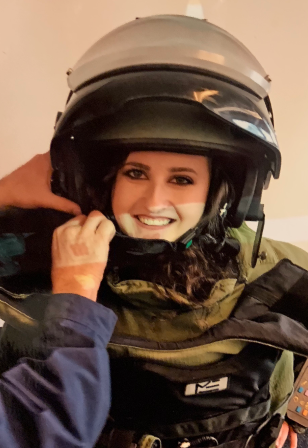
Policing Types
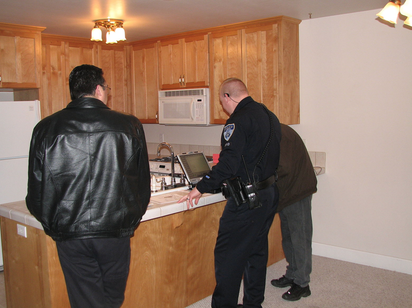
Federal Level: The federal arena of law enforcement careers is broad and vast. The options are almost endless, and the rewards outweigh most of the other local agencies. However, there is a catch, which centers on education and experience. Most law enforcement-related careers in the federal arena require a bachelor’s degree, at a minimum plus three years of related full-time work experience before applying.
- A bachelor’s degree in either accounting, computer science/information technology, foreign language (only a criminal justice major if the candidate is planning on working full-time for a law enforcement agency for at least three years before applying),
- OR a JD degree from an accredited law school,
- OR a diversified bachelor’s degree AND three years of professional experience, OR a master’s degree, or Ph.D. along with two years of professional experience.
Federal job possibilities (the list is not comprehensive)
- Federal Bureau of Investigation (FBI)
- Bureau of Alcohol, Tobacco, Firearms, and Explosives (ATF)
- Drug Enforcement Administration (DEA)
- Secret Service
- Central Intelligence Agency (CIA)
- National Security Agency (NSA)
- United States Marshals Service (USMS)
- U.S. Park Police
- U.S. Fish and Wildlife Service (USFWS)
- Department of Justice
- Federal Bureau of Prisons
- U.S. Army Criminal Investigation Command (CID)
- U.S. Army Counter Intelligence
- Dept. of Ariculture-Office of Inspector General (USDA-OIG)
- U.S. Forest Service Law Enforcement & Investigations (USFS LEI)
- Department of Commerce-Office of Inspector General (DOC-OIG)
- Office of Security (DOC-OS)
- US Commerce Department Police
- Office of Export Enforcement (OEE)
- National Institute of Standards and Technology Police
- United States Pentagon Police
- Department of Defense-Defense Criminal Investigative Service (DCIS)
- United States Pentagon Police (USPPD)
- Department of Defense Police
- Defense Security Police
- Defense Logistic Agency Police
- United States Coast Guard (USCG)
- Plus Many More ++
State Level: State police work for a state. For example, in Oregon, the state police work for the state of Oregon and the department is Oregon State Police (OSP). In Nevada, the state police are Nevada Highway Patrol (NHP) and work for the Nevada Department of Public Safety. The commissioned (certified by the state with powers of arrest) employees are generally called troopers (a.k.a. police officers), their uniform is blue (except for California Highway Patrol who wear tan and dark brown uniforms), they wear round tipped hats, and their primary duty is to patrol the highways and interstates; however, many state police also investigate many different criminal crimes, run criminal forensic labs, along with divisions of fish and wildlife. The duties of each state agency are different and unique to each state. For example, OSP has an explosives unit (see photo below).
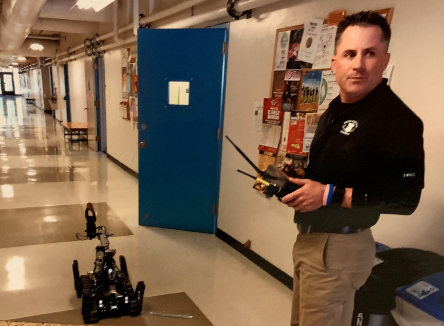
County Level: There are 3,142 counties in the United States. [1] Each county has an elected Sheriff and deputies (a.k.a. police officers) work directly under the Sheriff. Deputies are no different from any other city police officer other than the Sheriff can be responsible for the courts and jails (a.k.a. correctional facility) in their respective county. But there are also many city police departments that are responsible for jails, so it just depends on the department.
- Jackson County Sheriff’s Office
- Josephine County Sheriff’s Office
- Douglas County Sheriff’s Office
- Deschutes County Sheriff’s Office
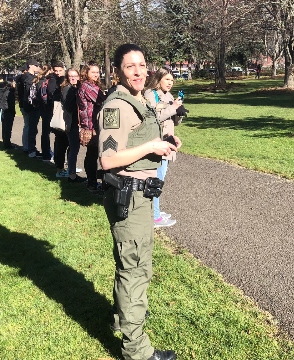
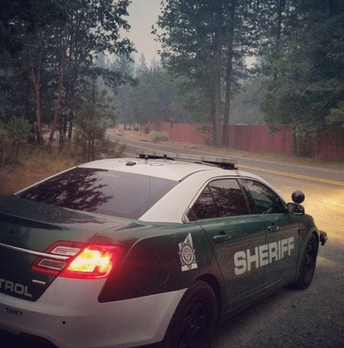
Municipal/City Level: Municipal/City police work under a municipality or city. If a city has a government, i.e., mayor and city council members and a municipal code (misdemeanor laws for the city), then the city can have city police. If a person works for a city, the designator is a police officer. Some cities have a connected jail (a.k.a. correction or detention facility), while others are operated through the Sheriff and the county.
- Ashland Police Department
- Talent Police Department
- Phoenix Police Department
- Medford Police Department
- Central Point Police Department
- Eagle Point Police Department
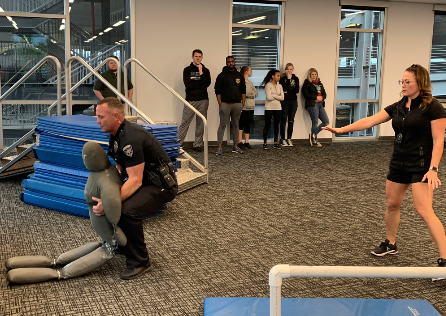
Miscellaneous Policing Jobs: There are many police jobs that may fall under the jurisdiction of the federal government, state, county, or city or they are civilian positions (see below):
- Bailiff for a Court
- Animal Control or Animal Cruelty Investigator
- Computer Forensics
- Correctional Counselor
- Court Clerk or Court Reporter
- Criminologist
- Private Investigator
- Criminal Justice Administration
- Crime Prevention Specialist
- Protection Officer
- Forensic Accountant, Anthropoligist, Artist, Hypnotists, Nurse, Pathologist, Psychologist, Scientist, Serologist, Toxicologist
- Judge
- Juvenile Probation Officer
- Latent Print Examiner
- Legal Secretary/Paralegal
- Loss Prevention Officer
- Mediator/Negotiator
- Pre-trial Officer
- Security Analyst
- Security Officer
- Social Worker
- Victims Advocate
- Plus Many More ++
Becoming an Officer Example
Divisions within Each Agency: Law enforcement agencies, whether they are federal, county, state, or municipal/city, generally have jobs available within two major areas: 1- Commissioned 2- Civilian. Commissioned is a term that describes an employee that has been through police training is certified as a police officer and has arresting powers in the state. Civilian is a term that describes an employee who has not been through police training and does not have arresting powers.
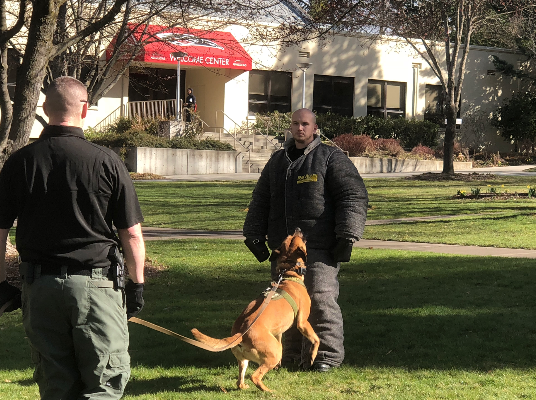
COMMISSIONED- Divisions within a Law Enforcement Agency:
- Detective/Investigations (Persons Crimes- Property Crimes-Homicide, Rape, Robbery, Burglary, Auto Theft, DUII, Domestic Violence)
- Motors
- Narcotics
- Human/Sex Trafficking
- VICE
- NCrime Scene Investigation (CSI)
- SWAT
- K-9 (patrol, drug, and search & rescue dogs)
- Crisis Negotiator
- Mounted Unit (horses)
- Air Unit
- Training/Range Master
- Academy/Tac Officer
- Bike Patrol
- Recruiting
- Internal Affairs
- Public Information Officer
- Gangs
- Search & Rescue
- Forest and Fish & Wildlife
- Marine
- Various Area Task Force (usually made up of various law enforcement agencies in the area- to sometimes include federal agencies too)
- Plus Many More ++
CIVILIAN- Divisions within a Law Enforcement Agency:
- Dispatch/911 Operator
- Records
- Crime Analysis
- Forensic Unit/CSI
- Training
- Fleet Management
- Support/Facilities
- Human Resources
- Operations Support Unit
- Recruitment Coordinator
- Volunteer Coordinator
- Administrative Support
- Plus Many More ++

Contact with Outside Agencies: It takes a team to accomplish policing. One federal, state, county, or city police agency cannot do it all alone. In order to succeed the agencies must work together. Whether a narcotics division works with the ATF or an entire SWAT team comprised of officers from various city and county departments, the team concept in policing is unwavering.
Medford Police, Ashland Police, Central Point Police, Jackson County Sheriff’s Office, Oregon State Police, Jackson County Community Corrections, Federal Bureau of Investigation, Homeland Security Investigations Division, and the Oregon Army National Guard. Not only does the job get done more efficiently and more effectively but also the communication that occurs when nine different agencies converge is awe-inspiring.Finally, once one enters the policing field, the contacts made daily are numerous.
- Jails/Correction/Detention Facilities and Employees
- Prisons
- Prosecutors Office
- Defense Attorneys
- Judges and Lawyers
- Various Social Services
- Educational Entities
- U.S. Department of the Interior (2018, September 23). How many countries are there in the United States. Retrieved from https://www.usgs.gov/faqs/how-many-counties-are-there-united-states. ↵


